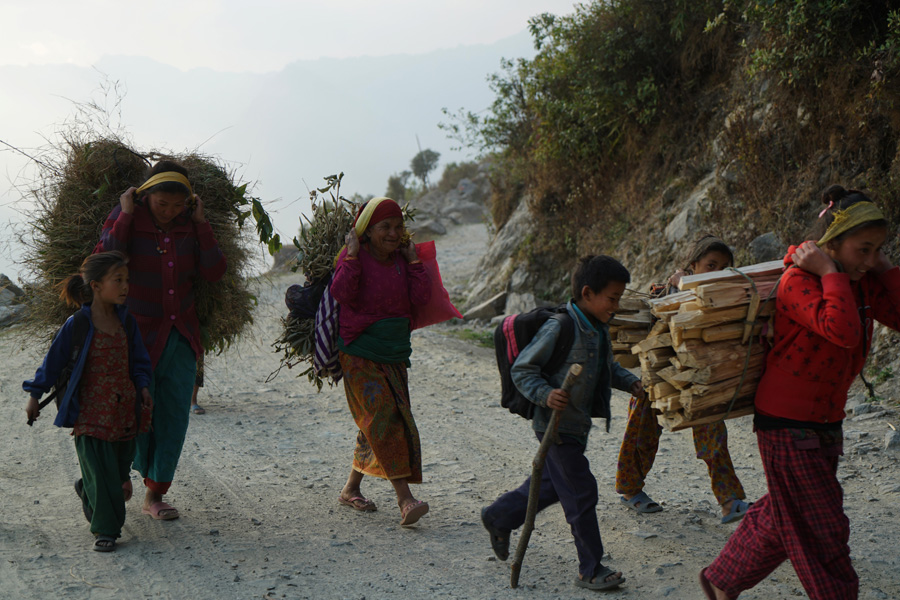







 |
|
Nepalese villagers carry bamboo baskets of grass along a road near Nepal's border with China. [Photo by Sylvia Chang/China Daily] |
The route from Nepal's capital city of Kathmandu to the Kerung border crossing, linking China, is about 150 kilometers. Bumpy and rocky, the road that snakes its way along the folded peaks of the Himalayas is now the only land-based lifeline between Nepal and its giant neighbor to the north.
The border crossing in Rasuwa district connects Nepal with Jilong county in the Tibet autonomous region. The route reopened in October, six months after it was closed after the devastating magnitude-7.8 earthquake that struck the country on April 25 last year. It is estimated that more than 8,000 people were killed and more than 21,000 injured in the quake and a series of strong aftershocks that followed.
The two other international border crossings in northern Nepal were also damaged.
Before the quake, the Khasa border crossing - 115 km from Kathmandu, and linking Kodari in Nepal with Zhangmu in China - was the major trading point between the two countries. Equipped with customs checkpoints and quarantine facilities, the crossing accounted for most of Nepal's trade with China.
Although the Kerung border point is not equipped with the same facilities, government officials in both countries attach great importance to the crossing. All the construction work indicates the facilities are being expanded, suggesting that the crossing is expected to thrive - not only as a bilateral trade route, but also as China's international access point to South Asia.
With its contrasting views of deep, winding ravines and imposing Himalayan peaks, the scenery along the road to Dhunche, the administrative headquarters of Rasuwa district, is spectacular.
Small, wooden houses perch high on the mountains, mostly in complete isolation. Clusters of villagers, wearing embroidered linen clothes, can occasionally be seen walking along the road. They carry grass-filled bamboo baskets on their backs. A herd of goats or yaks tags along, accompanied by the sound of clanging bells.
Living conditions may be primitive, but the lives linked by the border road look set to benefit from a change in attitude toward border policies between the two neighbors.
Business activity around the border crossing is picking up. A few months ago, 35-year-old Bisnu Maya Ghale opened a stall to sell snacks on the roadside, encouraged by the steady flow of Nepalese army personnel, police and laborers.
As a Rasuwa resident, Ghale has permission to pass through the border to conduct business in Jilong. She said her family plans to take out a bank loan to buy a truck to help them with their business.
"With the truck, my husband won't have to work overseas," she said, pouring milk tea for her two little daughters who were clinging to her legs.